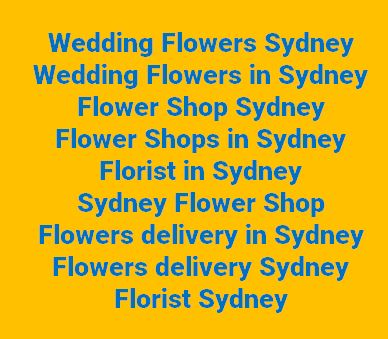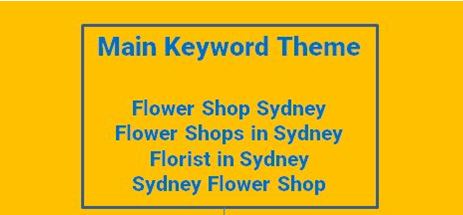-
Traffic
Get More Traffic
SponsoredLinX offers a number of different services to help drive more qualified traffic to your website. Google Ads Management Search Engine Optimisation Microsoft Ads Facebook Advertising Google Ads Mobile“SponsoredLinX are a rarity in today’s market place, they promise a lot but deliver more. Our business has grown by over 400% in one month; we are amazed at the difference they have made.”
-
Conversion
Convert More Leads
Our second step is making sure that your website is able to convert the traffic you receive into leads for your business. Optimising your website to convert more leads is important to a profitable campaign. Web Development Convertopages Do It For Me eCommerce“I just want to say thank you! The changes that you have applied in our AdWords campaign have definitely seen an improvement on click quality and sales for HippityHop.”
-
Retention
Retain Your Customers
As you build up a customer base you need to make sure to keep engaged and retain your relationship. LinX App“SponsoredLinX fully redesigned our main company website with a fresh, clean and professional look. The ‘Google friendly’ web design were part of the fantastic ongoing service we received.”

How To Make Smart Decisions with your Onsite SEO
Our final blog in our ‘SEO Tips & Tricks’ Optimise Webinar takes a look at some of our best onsite SEO strategies. Onsite optimisation is any improvement made to the website architecture to make it easier for search engines to crawl and index the site. You must also ensure that your onsite SEO optimisation is structural and that any technical alterations and tweaks to your website must make it more appealing to Google.
You must also avoid creating near duplicate content on different landing pages, even if the only difference comes down to different target areas. For example, if you are an electrician and you want to rank for different suburbs, it would make sense that you have a landing page designated to each target area. As long as you don’t copy and paste the content with the only change being the location, Google shouldn’t be too worried about this. Avoiding duplicate content is simple. When targeting similar keywords it may even be a good idea to group up to four terms and have these on the same page. Create unique, original, honest content about what products and services you provide, and which different places you provide them.
A keyword that is targeted is usually going to convert better. An example might be the keyword phrase ‘split rate variable home loan’. This keyword phrase contains five keywords, therefore making it much more specific than ‘home loan’. Remember broad keywords are less likely to convert as well. In fact, the average length for a high converting keyword phrase is three keywords.
Keyword: Theming and Grouping
When we are looking at doing on-site SEO the first thing we do is take a list of keywords and we group them into themes. Why would we do that? Well, essentially when starting with a group of keywords there is no real plan. They are just a list of relevant keywords to your business, and hopefully, your customers.
The first thing we need to do is get them all into relevant ‘sections’. They can also be referred to as ‘keyword silos’. We like to refer to it as ‘keyword theming’. In any case it is a grouping of keywords. As an example here we have a keyword list based around ‘flowers’.
We have the ‘main keyword theme’ on the index page to focus on major keywords such as’ flower shops’, ‘Sydney’, ‘Florists in Sydney’, and ‘Flower Shops’. It is all around one to two major keyword themes.
But why do we group keywords in the first place? There are separate pages within your website, and they are all designed to lead potential traffic to the page with the most relevant information for them.
Of course, every other florist in Sydney will want to rank for the same, if not similar, keywords, so you need to stand out! How? Through the implementation of relevant, informative, insightful, genuine and unique content on your landing pages.
The other important part to remember about keywords is that they are not stagnant. People are using new search queries all the time, so it is important that you’re ‘speaking the same language’ as your customers and that you’re watching out for any new keyword phrases which could bring in that extra bit of traffic.
The final strategy we’re going to talk about refers to link building. Google recommends that through the use of creating instructive, legitimate, and relatable content, other users and websites will naturally want to link to the information you offer on your website. This is the best way to naturally grow your link building, as it also adheres to Google’s Quality Guidelines. Google has loads of information to help you out when it comes to abiding by their Quality Guidelines, and we strongly recommend you familiarise yourself with them, which you can do so here.
Let’s quickly revise and take a look at our SEO 101…
- Keyword Research
It is critical that you know which keywords work for you online and which ones don’t, because you know what? Time is your most valuable resource. If you go ahead and implement a poorly structured keyword list and spend six months on an SEO campaign, only to find you have gotten it all wrong, then that is a massive waste of your time. Keyword Research is critical.
- Keyword Grouping
Once you know the keywords that convert well for you, theme those keywords into groups. This way they will be more relevant to Google as the landing pages dedicated to those keyword groups are not diluted by other keywords.
- Relevant Content
Make sure that the content on these landing pages are relevant to the keywords dedicated to that particular landing page. Google will rank websites which contain the most informative and genuine content in relation to a search query. If you do this, Google will reward you by ranking your website highly in its organic results.
- Link Building: We’ve said it before, but we’ll say it again; create relevant and insightful content to naturally grow your link building. This is a strategy Google recommends and so do we.
At the end of the day, it is all about beating your competitors. The SME market is continually becoming more and more competitive with businesses and competitors getting savvy with SEO. You truly need to be a step ahead. In 2015, it’s absolutely time to start thinking smart about your SEO strategies, so make a smart move and register for our SEO Tips & Tricks Optimise Webinar, which will launch on Wednesday 27th May at 10:30 am. We’ll see you there.



